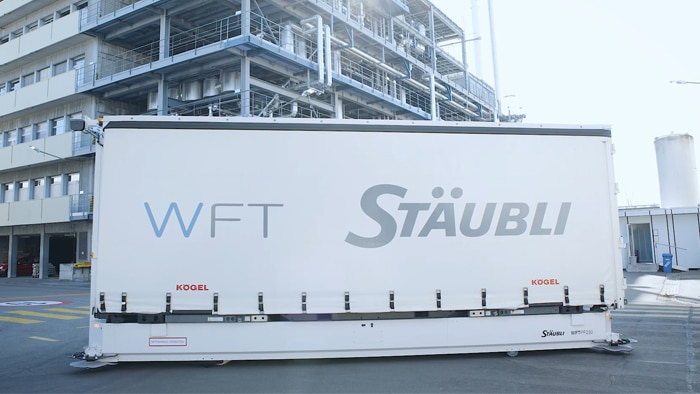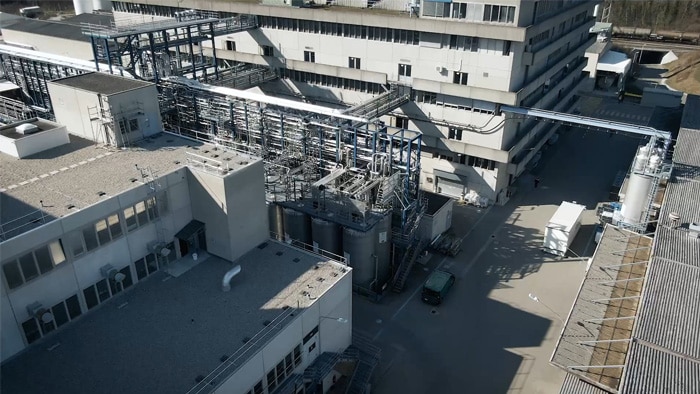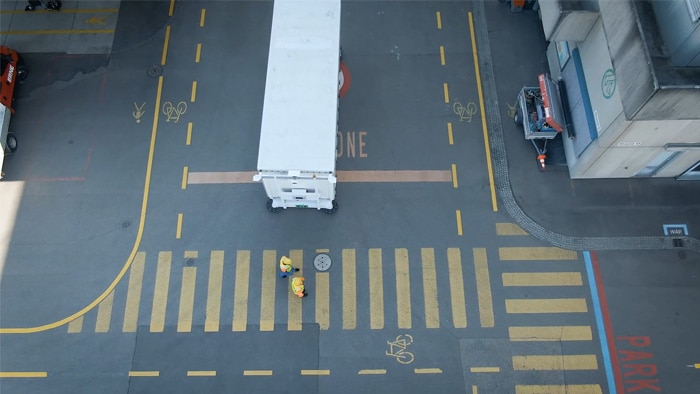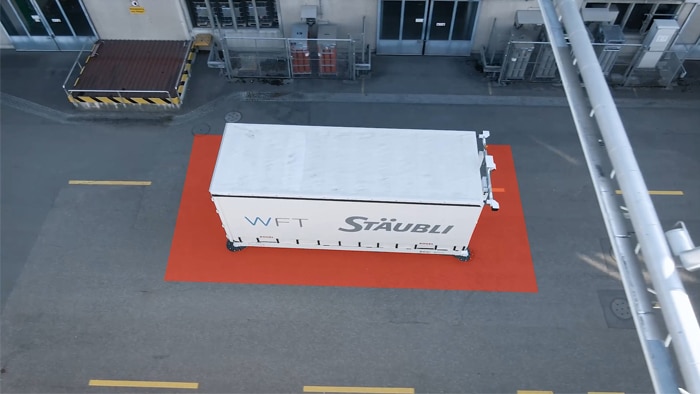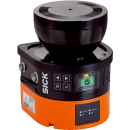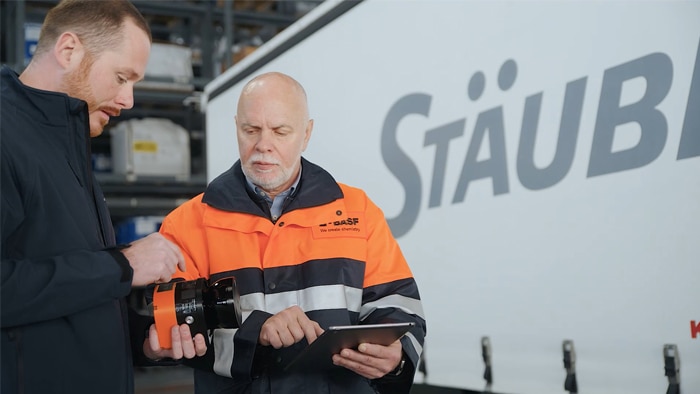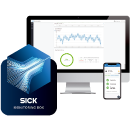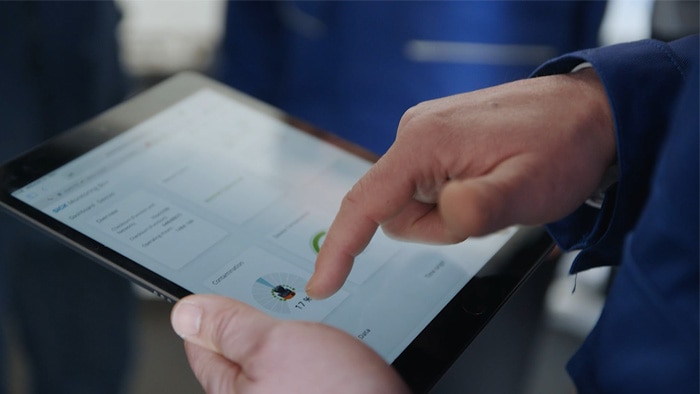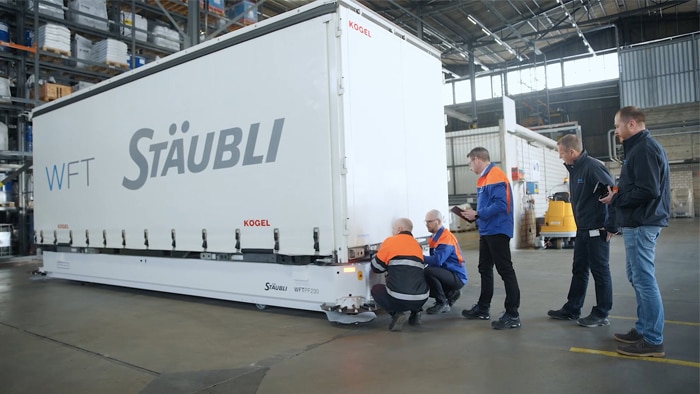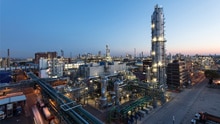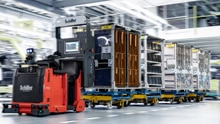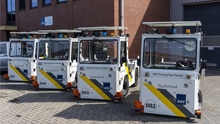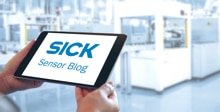BASF is driving developments in the automation and digitalization of intralogistics in indoor and outdoor areas. It has achieved this at its Swiss location in Kaisten with an automated guided vehicle system developed in conjunction with Stäubli WFT and SICK.
Autonomous intralogistics from indoors to outdoors: SICK and Stäubli WFT provide a seamless logistics chain for BASF
At the border between Germany and Switzerland, limits are being overcome. Here, at the Upper Rhine location in Kaisten, the world’s largest chemical company BASF produces additives that make plastics more effective and sustainable. Despite the high level of automation throughout the plant, BASF set out to exploit further savings potentials in its logistics and material supply through automation. The “savings box” they came up with measures just under eight meters long and over two meters wide. It is an automated guided vehicle that automatically fetches products and transports them beyond the boundaries of the production hall and onwards to the warehouse.
Flexible automation by Stäubli WFT
BASF is able to deploy this scalable-in-size vehicle at any of its location and according to requirements. It was developed by Stäubli WFT, a manufacturer of mobile transport platforms. Being part of an international group, the company offers numerous products for a multitude of industries, including automated guided vehicle systems (AGVs) for use in industrial intralogistics. Cajetan Kredler, Team Leader Product Development at Stäubli WFT, explains: “The fully automated vehicle for indoor and outdoor use can also maneuver itself beyond the recessed tracks or thresholds. And despite its size, it is space saving due to its omnidirectional movement.” The platform can move payloads of up to 20 tonnes. The vehicle drives fully autonomously to various stations in production and the warehouse area, whereby the next destination can be selected via a web interface.
Tobias Gaschnitz, Engineer Intralogistic Design at BASF in Ludwigshafen, determined an essential characteristic: “An AGV in mixed mode operation must be able to move safely both in indoor and outdoor areas. Persons and obstacles must be recognized early.“
SICK was onboard from the beginning as a partner to come up with the best solution for the competing demands of productivity and safety. What began in the fall of 2019 with comprehensive tests and a long term study is now being successfully used in practice in Kaisten.
The outcome of the collaboration is a joint evaluation of different 2D LiDAR sensors, digital services for comprehensive condition monitoring and, as a key centralized component for intralogistics in outdoor areas, the outdoorScan3 safety laser scanner.
A total of four outdoorScan3 devices secure the area around the vehicle during operation while ensuring a reliable and comprehensive protection of all persons involved in the intralogistics transport at the plant. Michael Badeja, Strategic Product Manager at SICK: “The outdoorScan3 monitors the surroundings of the vehicle by means of defined protective fields. As soon as a person or object comes too close to the vehicle, an emergency stop is initiated to ensure their safety.” The data measured by the outdoorScan3 are also used, for example, to position the vehicle during loading and unloading.
Suitable for outdoor use: the weatherproof safety laser scanner
The safety laser scanner has been specially developed for automation in outdoor areas. The outdoor safeHDDM® scanning technology ensures reliable operation even in hot, cold, windy, rainy or snowing conditions.
Marco Burkhart is an Intralogistic Design Engineer at BASF in Ludwigshafen. He says: “We were unable to find any comparable safety laser scanner on the market that can meet our requirements for driving at performance level D.”
Sensor components in conjunction with digital services
“For BASF, we recommended from the outset the sensor components with digital services,” Michael Badeja continues. This means: The most important sensor data are recorded and evaluated in order to establish not only the operational status of the components but also information about their performance under the prevailing ambient conditions. This enables the high safety level to be maintained and the performance of the system to be continuously optimized. A suitable level of detail for this information for individual components or the entire vehicle is mapped within the SICK Monitoring Box. In this way we implemented a digital application support for Stäubli WFT and BASF that can also be scaled up for a large number of other vehicles.
The three partners BASF, Stäubli WFT and SICK are therefore working together here to develop an autonomous logistics chain beyond the boundaries of production halls true to SICK’s goal of “Creating Safe Productivity”.
Read more
Outdoor intralogistics taken to a new level: outdoorScan3 at BASF
Greater autonomy thanks to modular vehicle fleet: Seamless indoor and outdoor operation in intralogistics
AGVR makes autonomous tractor safe for outdoor applications
